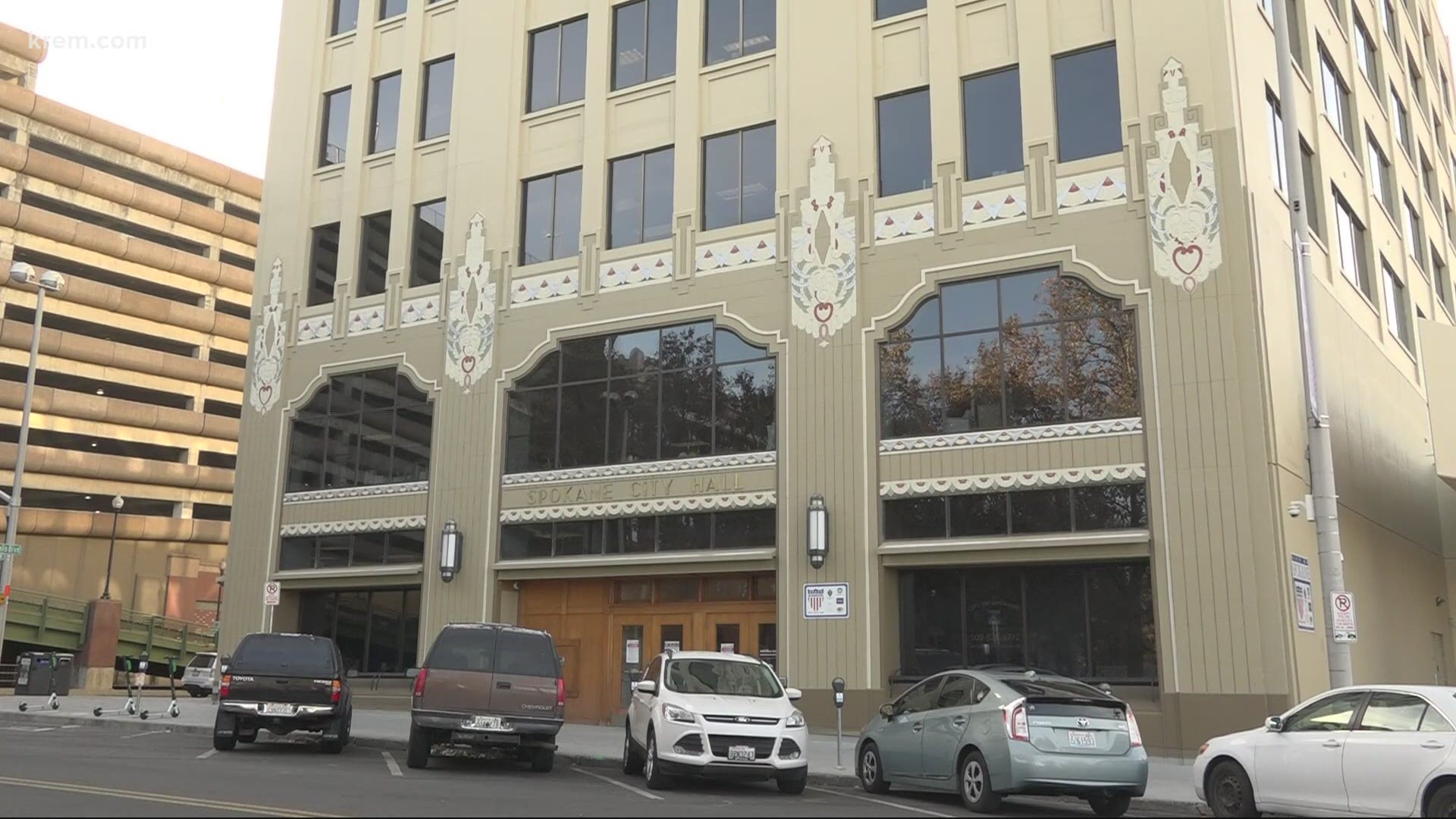SPOKANE, Wash. — Restaurants aren't the only ones understaffed right now; the City of Spokane is also dealing with an increase in vacancies exacerbated by a variety of pandemic-related pressures.
There are roughly 183 open positions in the city government right now. Officials say that's only slightly higher than normal. But, with an increasing number of high-profile resignations in recent months and a red-hot job market, there's rising concern about burnout and the ability to fill those roles.
Transitioning into a remote work setting was a challenge for many city employees, and now so is transitioning out of it.
“A year and a half ago we had to completely remake our workforce and environment, like everybody else did," said city administration spokesman Brian Coddington. "Now we’re coming back to a point where we’re bringing everybody back, and so changing that environment, creating additional stress.”
The result has been a series of resignations, particularly in departments like housing that underwent a lot of turmoil and had to take on new responsibilities during COVID.
“Employees are feeling burnt out and very challenged, and as people leave, that just makes it worse," City Council President Breean Beggs said.
“A lot of staff, from what I’ve heard, have felt like they’ve been doing multiple jobs," City Council Member Michael Cathcart said.
On top of that, Mayor Nadine Woodward’s administration slowed down hiring during the pandemic, fearful the city was about to take a big hit to the budget. There were also logistical challenges.
“COVID has impacted the ability to recruit, and to conduct interviews and find the right candidate," Coddington said.
The budget hit didn’t end up being that bad, but there’s now still a backlog of vacancies.
“We dug ourselves a pretty big hole that we need to get out of," said Beggs. “People aren’t getting city services that they paid for with their taxes. And that’s the frustration. When you don’t fill a position, you don’t save money for taxpayers. You’re still taxing them, and they’re just not getting the services.”
Now, the administration is finally ramping up hiring efforts, but it’s facing the same challenge employers across all sectors are: a competitive recruiting environment, and workers who are being pickier about which jobs they’ll take.
“Recruiting’s a tough market right now, and finding employees who can do the work and want to do the work is a challenge for us," Coddington said.
One way for the city to compete could be offering better pay or allowing people to work from home.
“There may be some positions where it’s increased salary, but I think more it’s going to be workplace flexibility," Beggs said.
But in another area the city’s at a disadvantage.
For many positions it has to go through the civil service, a bureau designed to prevent things like nepotism and favoritism in hiring. Those prevention mechanisms can really slow down the process.
“Even if tomorrow you go out to hire for a position, it can be a nine month wait in some cases because of how backed up civil service is," Cathcart said.
“You can’t just turn on the spigot for [hiring city workers] because it takes so much longer," Beggs said.
That causes a variety of problems. It makes it harder to get through the backlog, which in turn requires the remaining employees to pick up more slack, which can cause them to burn out and leave, creating even more vacancies before the existing ones can be filled.
A slow hiring process also means candidates may take other offers before the city can bring them on.
Cathcart says if the city wants to stop the spiral of losing staff, it needs to streamline its hiring.
“I just really think we need to look at civil service, find some good reforms that we can agree on to make it more effective and efficient, and allow us to targeted-hire the right people for the right jobs," he said.
However, no concrete reforms are on the table. Instead, the strategy seems to be refocusing on speeding up efforts within the existing system, and on filling the higher-profile roles that don't need to go through the civil service, but can instead be appointed by the mayor and confirmed by council in a more traditional hiring process.

